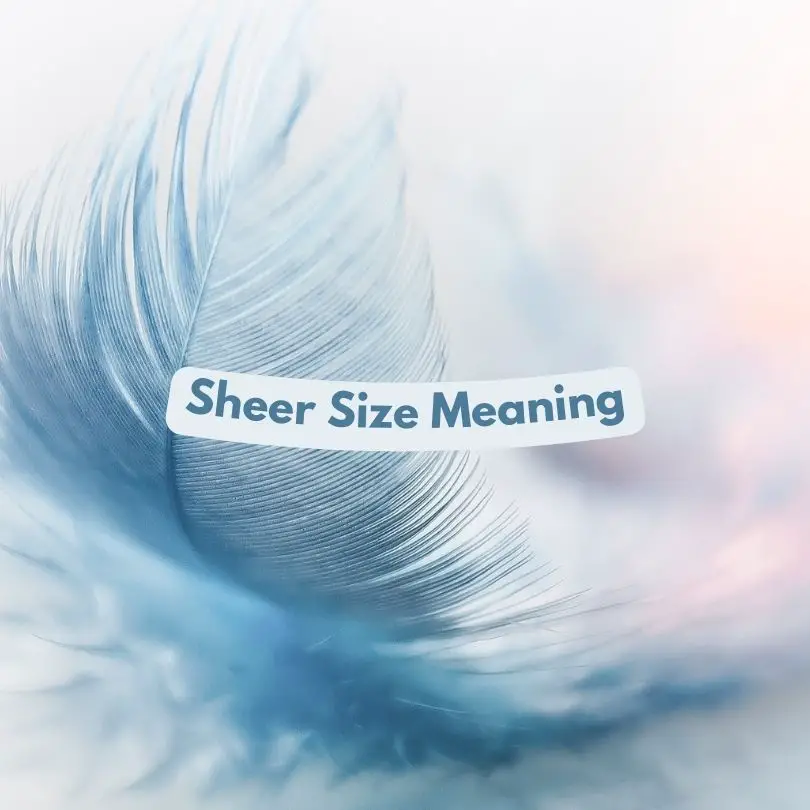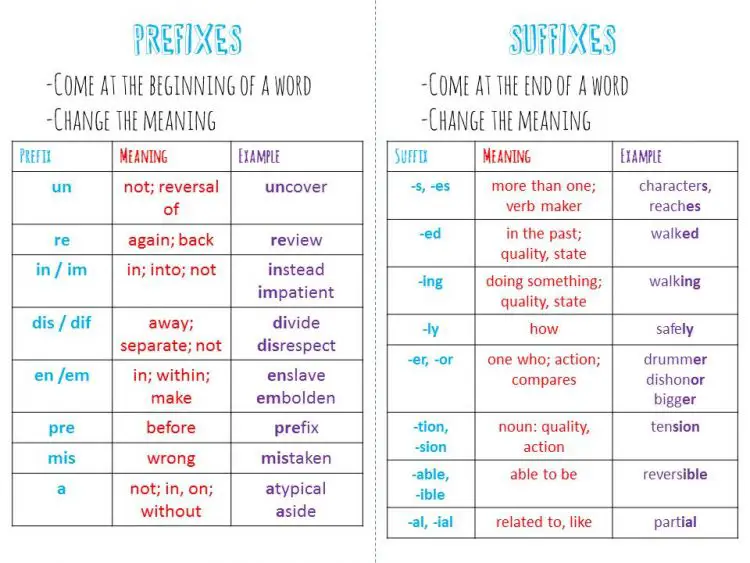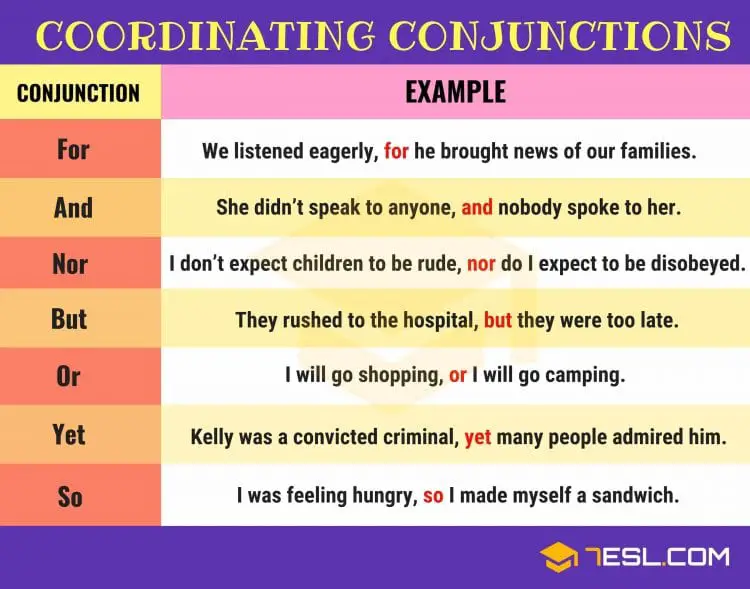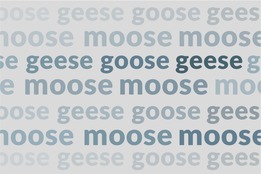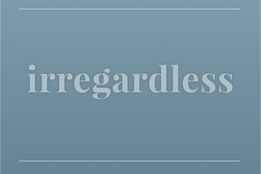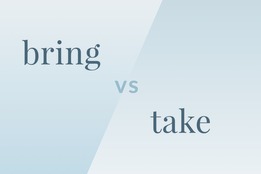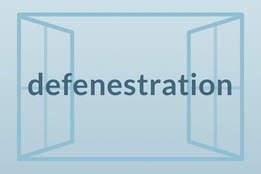What does “creations” mean?
Anything that has been manufactured or produced may be referred to as a creation, although the term is most often used to describe anything that has been brought into life with creativity, hard work, or talent. It can mean things that can be seen or touched, like works of art or buildings, or things that can’t be seen or touched, like musical compositions or e-books. Creations may also refer to the act of making something. For example, a sculptor might say, “I am working on a new creation,” referring to the statue they are making.
Here are 20 synonyms for “creations”
- Artifacts
- Works
- Produce
- Outputs
- Constructions
- Fabrications
- Compositions
- Formations
- Manufactures
- Artefacts
- Innovations
- Inventions
- Artworks
- Pieces
- Designs
- Originals
- Masterpieces
- Makings
- Handiworks
- Crafts
Antonyms for “creations”
Here are some antonyms for “creations”:
- Destructions
- Annihilations
- Demolitions
- Eliminations
- Terminations
- Abolitions
- Wreckages
- Ruinations
- Dissolutions
- Decompositions.
Here are some example sentences using the word “creations”
- The artist’s creations were displayed in a gallery for the public to admire.
- The inventor’s latest creations have revolutionized the field of robotics.
- Her creations are so beautiful, I can’t believe she made them herself.
- Chef’s creations were a hit at the dinner party, and everyone asked for the recipes.
- Scientist’s creations have changed the world and improved people’s lives.
- The children were proud of their creations and showed them off to their friends.
- The engineer’s creations were functional and innovative, and they won several awards.
- The writer’s creations are loved by millions of people all over the world.
- The artist’s creations were unique and expressed a deep connection to nature.
March 26, 2023
List of 100 Nursing phrases
-
March 26, 2023
Examples of Silent Letter L
March 26, 2023
What is a baby elephant called?
March 6, 2023
End of an Era Meaning
March 5, 2023
Murphy’s Law List and Examples
March 3, 2023
What is the difference between centre and center?
February 7, 2023
Annexion Bedeutung
February 7, 2023
Was bedeutet Smash?
February 5, 2023
February 5, 2023
Another word for Amazement
February 5, 2023
20 Companies and Jobs with best work-life balance
February 1, 2023
What are cookies?
January 29, 2023
What is the difference between World and Earth?
January 28, 2023
What is IPA?
January 28, 2023
Is “fish” a prefix of fishing? As “ing” is the suffix?
January 28, 2023
I cook pasta every Friday evening. Where is the adverb in that sentence?
January 26, 2023
Find the Perfect Film for your Mood with our “What Movie Should I Watch” Quiz!
January 25, 2023
Spot Parts of Speech [Grammar Quiz]
January 15, 2023
Main Connectors in French
January 12, 2023
What are the synonyms for Being Strong?
January 11, 2023
Sheer Size meaning
January 11, 2023
Sheer Meaning
January 11, 2023
PSA Meaning
December 31, 2022
Try out our Free Password Generator
December 22, 2022
What Does the Name Encanto Mean?
December 22, 2022
50 JAVA Interview Questions
December 18, 2022
50 Questions for the Interview with the Vampire
December 18, 2022
Good Morning in Vietnamese
December 4, 2022
-ion suffix meaning
October 19, 2022
FANBOYS GRAMMAR 😃🥳😜 7 Coordinating Conjunctions with Examples
What is another word for “create”? This article provides a list of commonly used “create” synonyms with ESL pictures and helpful example sentences. Learn those words to use instead of “create” to broaden your vocabulary in English.
Create Synonym
Create Definition and Examples
Meaning of Create:
The word create is a verb. Create means to give birth to something or someone, invent a character as in a movie or play or to make something happen as a direct result of your actions.
Examples:
- Pamela decided to create a new club at her school to help other students like herself.
- I need to create a new spreadsheet on my computer to keep track of my bills.
- To create life is truly a miracle.
Other Words for “Create”
Commonly used synonyms for “create”.
Learn the list of synonyms for “create” in English.
- Bring into being
- Bring into existence
- Build
- Coin
- Concoct
- Constitute
- Construct
- Do
- Effectuate
- Erect
- Generate
- Give rise to
- Invoke
- Knock together
- Make
- Manufacture
- Originate
- Produce
- Synthesize
Big list of 55+ different words to use instead of “create”.
- Apply
- Beget
- Begin
- Breed
- Bring
- Bring about
- Bring into being
- Bring into existence
- Build
- Cause
- Change
- Choose
- Coin
- Come into being
- Compose
- Conceive
- Concoct
- Constitute
- Construct
- Contrive
- Design
- Develop
- Devise
- Do
- Effectuate
- Engender
- Erect
- Establish
- Fabricate
- Forge
- Form
- Formulate
- Frame
- Generate
- Give rise to
- Imagine
- Initiate
- Institute
- Invent
- Invoke
- Knock together
- Make
- Make up
- Manufacture
- Move
- Occasion
- Organize
- Originate
- Produce
- Provide
- Raise
- Select
- Set up
- Shape
- Start
- Synthesize
- Take
- Think up
- Used
Create Synonyms Infographic

Create Synonyms with Examples
Learn another word for “create” with example sentences.
- Bring into being
This rule was brought into being because the old law was abused.
- Bring into existence
One has to bring into existence a latent power capable of doing this.
- Build
A local developer is planning to build a supermarket on the site.
- Coin
He coined the term “desktop publishing”.
- Concoct
I gave her a tip on how to concoct a new kind of soup.
- Constitute
A whole consists of parts, the parts constitute the whole.
- Construct
There are plans to construct a new road bridge across the river.
- Do
One enemy can do more hurt than ten friends can do good.
- Effectuate
We do not have sufficient resources to effectuate our business.
- Erect
Six policemen started to erect a roadblock.
- Generate
The program would generate a lot of new jobs.
- Give rise to
Any lack of precision in the contract could give rise to a dispute.
- Invoke
In practice it has never had to invoke this law.
- Knock together
I could knock together a quick lunch if you like.
- Make
I must make a mental note to talk to her about it.
- Manufacture
Plants use the sun’s light to manufacture their food.
- Originate
The man can neither originate varieties, nor prevent their occurrence.
- Produce
These plants produce a number of thin roots.
- Synthesize
The spider can synthesize several different silk proteins.
Synonyms for Create with Examples
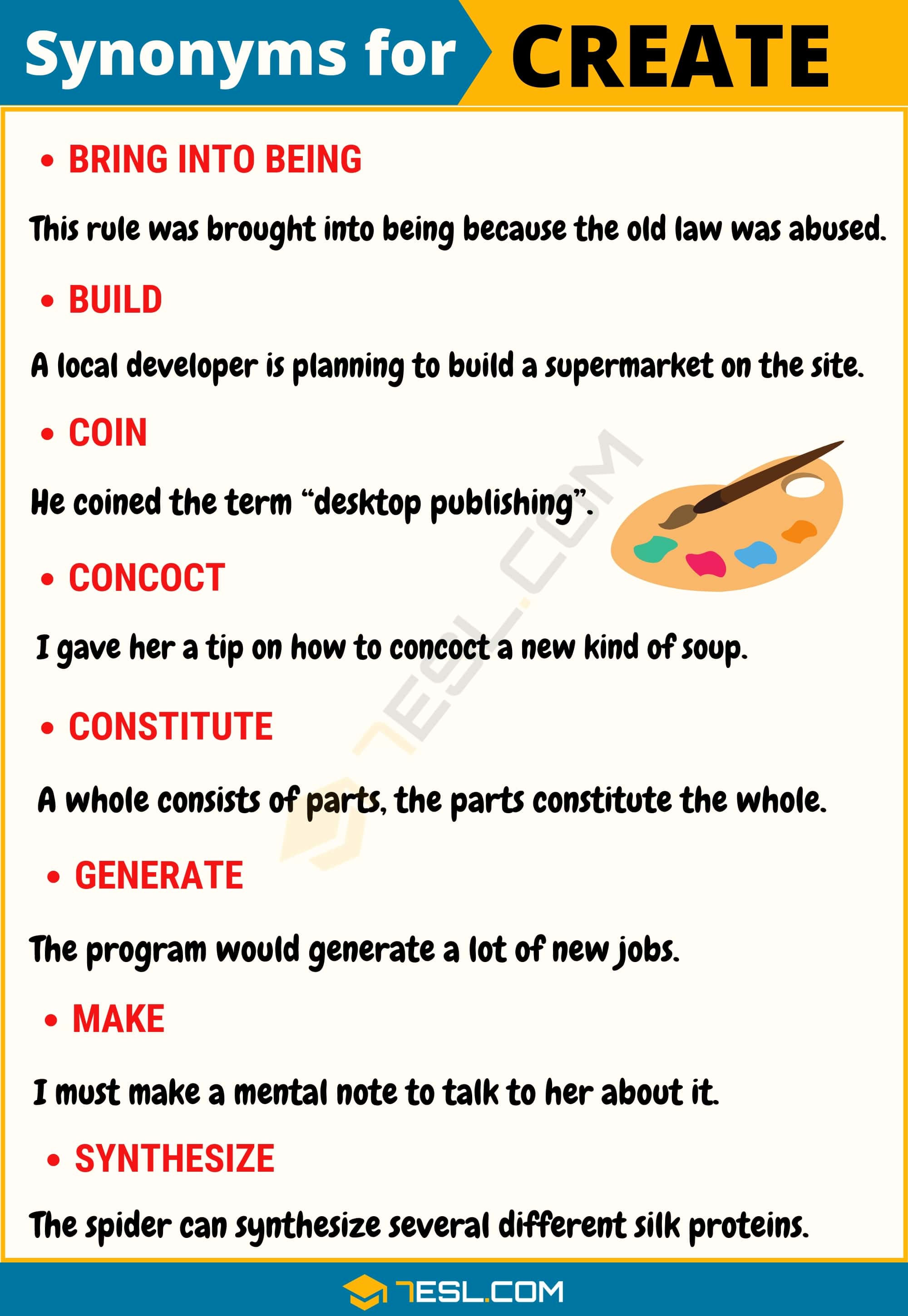
Last Updated on December 17, 2020
The idea for the Describing Words engine came when I was building the engine for Related Words (it’s like a thesaurus, but gives you a much broader set of related words, rather than just synonyms). While playing around with word vectors and the «HasProperty» API of conceptnet, I had a bit of fun trying to get the adjectives which commonly describe a word. Eventually I realised that there’s a much better way of doing this: parse books!
Project Gutenberg was the initial corpus, but the parser got greedier and greedier and I ended up feeding it somewhere around 100 gigabytes of text files — mostly fiction, including many contemporary works. The parser simply looks through each book and pulls out the various descriptions of nouns.
Hopefully it’s more than just a novelty and some people will actually find it useful for their writing and brainstorming, but one neat little thing to try is to compare two nouns which are similar, but different in some significant way — for example, gender is interesting: «woman» versus «man» and «boy» versus «girl». On an inital quick analysis it seems that authors of fiction are at least 4x more likely to describe women (as opposed to men) with beauty-related terms (regarding their weight, features and general attractiveness). In fact, «beautiful» is possibly the most widely used adjective for women in all of the world’s literature, which is quite in line with the general unidimensional representation of women in many other media forms. If anyone wants to do further research into this, let me know and I can give you a lot more data (for example, there are about 25000 different entries for «woman» — too many to show here).
The blueness of the results represents their relative frequency. You can hover over an item for a second and the frequency score should pop up. The «uniqueness» sorting is default, and thanks to my Complicated Algorithm™, it orders them by the adjectives’ uniqueness to that particular noun relative to other nouns (it’s actually pretty simple). As you’d expect, you can click the «Sort By Usage Frequency» button to adjectives by their usage frequency for that noun.
Special thanks to the contributors of the open-source mongodb which was used in this project.
Please note that Describing Words uses third party scripts (such as Google Analytics and advertisements) which use cookies. To learn more, see the privacy policy.
New
words in different notional classes appear also as a result of
various non-patterned ways of word creation. The two main types of
non-patterned word-creation are: I. Various
ways of transformation of a word-form into a word usually referred to
as lexicalisation
and II. Shortening
which consists in substituting a part for a whole. Shortening
comprises essentially different ways of word creation. It involves 1.
transformation
of a word-group into a word, and 2.
a
change of the word-structure resulting in a new lexical item, i.e.
clipping.
I.
Lexicalisation.
Due to various semantic and syntactic reasons the grammatical flexion
in some word-forms, most often the plural of nouns, as in, e.g. the
nouns arms,
customs, colours, loses
its grammatical meaning and becomes isolated from the paradigm of the
words arm,
custom, look. As
a result of the re-interpretation of the plural suffix the word-form
arms,
customs developed
a different lexical meaning ‘weapons’ and ‘import duties’
respectively. This led to a complete break of semantic links with the
semantic structure of the words arm,
custom
1
See
‘Word-Formation’, §
13, p.
123,
187
and
thus to the appearance of new words with a different set of
grammatical features. It must be noted that there is no unanimity of
opinion on whether all such items should be viewed as new words or
only as new meanings. Different approaches to the problem are
connected with the border-line between polysemy and homonymy1
and
many individual cases are actually open to doubt.
Essentially
the same phenomenon of lexicalisation is observed in the transition
of participles into adjectives. The process is also known as
adjectivisation.
It may be illustrated by a number of adjectives such as tired,
devoted, interesting, amusing, etc.
which are now felt as homonymous to the participles of the verbs to
tire, to marry, etc.
Lexicalisation
is a long, gradual historical process which synchronically results in
the appearance of new vocabulary units.
II.
Shortening.
Distinction should be made between shorten-” ing which results in
new lexical
items and a specific type of shortening proper only to written speech
resulting in numerous graphical
abbreviations
which are only signs representing words and word-groups of high
frequency of occurrence in various spheres of human activity as for
instance, RD
for
Road
and
St
for
Street
in
addresses on envelopes and in letters; tu
for
tube,
aer for
aerial
in
Radio Engineering literature, etc. English graphical abbreviations
include rather numerous shortened ‘ variants of Latin and French
words and word-groups, e.g.: i.e. (L. id est)
— ‘that
is’; R.S.V.P.
(Fr.
— Repondez
s’il vous plait)
— ‘reply
please’, etc.
Graphical
abbreviations are restricted in use to written speech, occurring only
in various kinds of texts, articles, books, advertisements, letters,
etc. In reading, many of them are substituted by the words and
phrases that they represent, e.g. Dr.
=
doctor,
Mr.=mister, Oct.= October, etc.;
the abbreviations of Latin and French words and phrases are usually
read as their English equivalents. It follows that graphical
abbreviations cannot be considered new lexical vocabulary units.
It
is only natural that in the course of language development some
graphical abbreviations should gradually penetrate into the sphere of
oral intercourse and, as a result, turn into self-contained lexical
units used both in oral and written speech. That is the case, for
instance, with a.m. [‘ei’em]
— ‘in
the morning, before noon’; p.m. [‘pi:’em]
— ‘in
the afternoon’; S.O.S.
[‘es
‘ou ‘es] (=Save Our Souls)
— ‘urgent
call for help’, etc.
1.
Transformations
of word-groups into words involve different types of lexical
shortening: ellipsis or substantivisation, initial letter or syllable
abbreviations (also referred to as acronyms), blendings, etc.
Substantivisation
consists in dropping of the final nominal member of a frequently used
attributive word-group. When such a member of the word-group is
dropped as, for example, was the case with a
documentary film the
remaining adjective takes on the meaning and all the syntactic
functions of the noun and thus develops into a new
1
See ‘Semasiology’, §
36, p.
42;
‘Various
Aspects…’,
§ 12, p.
194
— 195, 188
word
changing its class membership and becoming homonymous to the
existing
adjective. It may be illustrated by a number of nouns that appeared
in this way, e.g. an
incendiary goes
back to an
incendiary bomb, the finals to
the
final examinations, an editorial to
an
editorial article, etc.
Other more recent creations are an
orbital (Br.
‘a
highway going around the suburbs of a city’), a
verbal (‘a
verbal confession introduced as evidence at a trial’), a
topless which
goes to three different word-groups and accordingly has three
meanings: 1)
a
topless dress, bathing suit, etc., 2)
a
waitress, dancer, etc. wearing topless garments, 3)
a
bar, night-club featuring topless waitresses or performers.
Substantivisation
is often accompanied by productive suffixation as in, e.g., a
one-winger from
one-wing plane, a
two-decker from
two-deck
bus or
ship;
it
may be accompanied by clipping and productive suffixation, e.g.
flickers
(coll.)
from
flicking
pictures, a smoker from
smoking
carriage, etc.
Acronyms
and letter
abbreviations
are lexical abbreviations of a phrase. There are different types of
such abbreviations and there is no unanimity of opinion among
scholars whether all of them can be regarded as regular vocabulary
units. It seems logical to make distinction between acronyms and
letter abbreviations. Letter abbreviations are mere replacements of
longer phrases including names of well-known organisations of
undeniable currency, names of agencies and institutions, political
parties, famous people, names of official offices, etc. They are not
spoken or treated as words but pronounced letter by letter and as a
rule possess no other linguistic forms proper to words. The following
may serve as examples of such abbreviations: CBW
=
chemical
and biological warfare, DOD
=
Department
of Defence (of the USA), 1TV
=
Independent
Television, Instructional Television, SST
=
supersonic
transport, etc. It should be remembered that the border-line between
letter abbreviations and true acronyms is fluid and many letter
abbreviations in the course of time may turn into regular vocabulary
units. Occasionally letter abbreviations are given ‘pronunciation
spelling’ as for instance dejay
(=
D.J.
=
disc
jokey), emce
(=
M.C.
=
master
of ceremonies) in which case they tend to pass over into true
acronyms.
Acronyms
are regular vocabulary units spoken as words. They are formed in
various ways:
1) from
the initial letters or syllables of a phrase, which may be pronounced
differently a) as a succession of sounds denoted by the constituent
letters forming a syllabic pattern, i.e. as regular words, e.g. UNO
[‘ju:nou]
=
United
Nations Organisations; NATO
[‘neitou]
=
North
Atlantic Treaty Organisation, UNESCO
[ju:’neskou];
laser
[‘leisa]
=
= light
amplification by stimulated emission of radiation; radar
[‘reidэ]
=
=radio
detection and ranging; BMEWS
[‘bi:mju:z]
=
Ballistic
Missile Early Warning System; b) as a succession of the alphabetical
readings of the constituent letters as in, e.g., YCL
[‘wai’si:’el]
=
Young
Communist League; BBC
[‘bi:’bi:’si:]
= British
Broadcasting Corporation; MP
[’em’pi:] =
Member
of Parliament; SOS
[‘es’ou’es]
=
Save
Our Souls.
189
-
Acronyms
may be formed from the initial syllables of each word
of
the phrase, e.g. Interpol
=
inter/national
pol/ice; tacsatcom
=
Tactical
Satellite Communications: Capcom
=
Capsule
Communicator (the person at a space flight centre who communicates
with the astronauts during a space flight). -
Acronyms
may be formed by a combination of the abbreviation of the first or
the first two members of the phrase with the last member undergoing
no change at all, e.g. V-day
=
Victory
Day; H-bomb
=
= hydrogen
bomb; g-force
=
gravity
force, etc.
All
acronyms unlike letter abbreviations perform the syntactical
functions of ordinary words taking on grammatical inflexions, e.g.
MPs
(will
attack huge arms bill), M.P’s
(concern
at .
. .). They
also serve as derivational bases for derived words and easily
collocate with derivational suffixes as, e.g. YCLer
(=
member
of the YCL); MPess
(=
woman-member
of Parliament); radarman,
etc.
Вlendings
are the result of conscious creation of words by merging irregular
fragments of several words which are aptly called “splinters.” 1
Splinters
assume different shapes
— they
may be severed from the source word at a morpheme boundary as in
transceiver
(=transmitter
and receiver), transistor (=
transfer
and resistor) or at a syllable boundary like cute (from execute)
in
electrocute, medicare (from
medical
care), polutician
(from pollute
and
politician)
or
boundaries of both kinds may be disregarded as in brunch
(from
breakfast
and
lunch),
smog
(from
smoke
and
fog),
ballute
(from
baloon
and
parachute),
etc.
Many blends show some degree of overlapping of vowels, consonants and
syllables or echo the word or word fragment it replaces. This device
is often used to attain punning effect, as in foolosopher
echoing
philosopher;
icecapade (=
spectacular
shows on ice) echoing escapade;
baloonatic (=
baloon
and lunatic).
Blends are coined not
infrequently in scientific and technical language as a means of
naming new things, as trade names in advertisements. Since blends
break the rules of morphology they result in original combinations
which catch quickly. Most of the blends have a colloquial flavour.
2.
Clipping
refers
to the creation of new words by shortening a word of two or more
syllables (usually nouns and adjectives) without changing its class
membership. Clipped words, though they often exist together with the
longer original source word function as independent lexical units
with a certain phonetic shape and lexical meaning of their own. The
lexical meanings of the clipped word and its source do not as a rule
coincide, for instance, doc
refers
only to ‘one who practices medicine’, whereas doctor
denotes
also ‘the higher degree given by a university and a person who has
received it’, e.g. Doctor
of Law, Doctor of Philosophy. Clipped
words always differ from the non-clipped words in the emotive charge
and stylistic reference. Clippings indicate an attitude of
familiarity on the part of the user either towards the object denoted
or towards the audience, thus clipped words are characteristic of
1
See
V.
Adams. An
Introduction to Modern English Word-Formation, L., 1973.
190
colloquial
speech. In the course of time, though, many clipped words find their
way into the literary language losing some of their colloquial
colouring. Clippings show various degrees of semantic dissociation
from their full forms. Some are no longer felt to be clippings, e.g.
pants
(cf. pantaloons), bus (cf. omnibus), bike (cf. bicycle), etc.
Some of them retain rather close semantic ties with the original
word. This gives ground to doubt whether the clipped words should be
considered separate words. Some linguists hold the view that in case
semantic dissociation is slight and the major difference lies in the
emotive charge and stylistic application the two units should be
regarded as word-variants (e.g. exam
and
examination,
lab and
laboratory,
etc.).1
Clipping
often accompanies other ways of shortening such as substantivisation,
e.g. perm
(from
permanent
wave), op
(from
optical
art), pop
(from
popular
music, art, singer, etc.),
etc.
As
independent vocabulary units clippings serve as derivational bases
for suffixal derivations collocating with highly productive neutral
and stylistically non-neutral suffixes -ie,
-er, e.g.
nightie
(cf. nightdress), panties, hanky (cf. handkerchief). Cases
of conversion are not infrequent, e.g. to
taxi, to perm, etc.
There do not seem to be any
clear rules by means of which we might predict where a word will be
cut though there are several types into which clippings are
traditionally classified according to the part of the word that is
clipped:
-
Words
that have been shortened at the end—the
so-called apocope,
e.g. ad
(from
advertisement),
lab
(from
laboratory),
mike
(from
microphone),
etc. -
Words
that have been shortened at the beginning—the
so-called aphaeresis,
e.g. car
(from
motor-car),
phone
(from
telephone),
copter
(from
helicopter),
etc. -
Words
in which some syllables or sounds have been omitted from the
middle—the
so-called syncope,
e.g. maths
(from
mathematics),
pants
(from
pantaloons),
specs
(from
spectacles),
etc. -
Words
that have been clipped both at the beginning and at the end, e.g.
flu
(from
influenza),
tec
(from
detective),
fridge
(from
refrigerator),
etc.
It must be stressed that
acronyms and clipping are the main ways of word-creation most active
in present-day English. The peculiarity of both types of words is
that they are structurally simple, semantically non-motivated and
give rise to new root-morphemes.
Соседние файлы в предмете [НЕСОРТИРОВАННОЕ]
- #
01.03.2016250.37 Кб459.doc
- #
- #
- #
- #
- #
- #
- #
- #
- #
- #
Home
About
Blog
Contact Us
Log In
Sign Up
Follow Us
Our Apps
Home>Words that start with C>creator
How to Say Creator in Different LanguagesAdvertisement
Categories:
Jobs and Occupations
Please find below many ways to say creator in different languages. This is the translation of the word «creator» to over 100 other languages.
Saying creator in European Languages
Saying creator in Asian Languages
Saying creator in Middle-Eastern Languages
Saying creator in African Languages
Saying creator in Austronesian Languages
Saying creator in Other Foreign Languages
abcdefghijklmnopqrstuvwxyz
Saying Creator in European Languages
| Language | Ways to say creator | |
|---|---|---|
| Albanian | krijues | Edit |
| Basque | sortzailea | Edit |
| Belarusian | стваральнік | Edit |
| Bosnian | tvorac | Edit |
| Bulgarian | създател | Edit |
| Catalan | creador | Edit |
| Corsican | creatore | Edit |
| Croatian | tvorac | Edit |
| Czech | tvůrce | Edit |
| Danish | skaberen | Edit |
| Dutch | Schepper | Edit |
| Estonian | looja | Edit |
| Finnish | luoja | Edit |
| French | créateur | Edit |
| Frisian | skepper | Edit |
| Galician | creador | Edit |
| German | Schöpfer | Edit |
| Greek | δημιουργός [dimiourgós] |
Edit |
| Hungarian | Teremtő | Edit |
| Icelandic | Skapari | Edit |
| Irish | cruthaitheoir | Edit |
| Italian | Creatore | Edit |
| Latvian | radītājs | Edit |
| Lithuanian | kūrėjas | Edit |
| Luxembourgish | Schëpfer | Edit |
| Macedonian | творец | Edit |
| Maltese | kreatur | Edit |
| Norwegian | skaperen | Edit |
| Polish | twórca | Edit |
| Portuguese | O Criador | Edit |
| Romanian | creator | Edit |
| Russian | создатель [sozdatel’] |
Edit |
| Scots Gaelic | cruthadair | Edit |
| Serbian | творац [tvorac] |
Edit |
| Slovak | tvorca | Edit |
| Slovenian | ustvarjalec | Edit |
| Spanish | creador | Edit |
| Swedish | skapare | Edit |
| Tatar | ясаучы | Edit |
| Ukrainian | творець [tvorets’] |
Edit |
| Welsh | crëwr | Edit |
| Yiddish | שאַפֿער | Edit |
Saying Creator in Asian Languages
| Language | Ways to say creator | |
|---|---|---|
| Armenian | ստեղծող | Edit |
| Azerbaijani | yaradan | Edit |
| Bengali | স্রষ্টা | Edit |
| Chinese Simplified | 创造者 [chuàngzào zhě] |
Edit |
| Chinese Traditional | 創造者 [chuàngzào zhě] |
Edit |
| Georgian | შემოქმედი | Edit |
| Gujarati | સર્જક | Edit |
| Hindi | बनाने वाला | Edit |
| Hmong | creator | Edit |
| Japanese | 創作者 | Edit |
| Kannada | ಸೃಷ್ಟಿಕರ್ತ | Edit |
| Kazakh | Creator | Edit |
| Khmer | អ្នកបង្កើត | Edit |
| Korean | 창조자 [changjoja] |
Edit |
| Kyrgyz | жаратуучу | Edit |
| Lao | ເພື່ອນ E- | Edit |
| Malayalam | സ്രഷ്ടാവ് | Edit |
| Marathi | निर्माता | Edit |
| Mongolian | бүтээгч | Edit |
| Myanmar (Burmese) | ဖန်တီးသူ | Edit |
| Nepali | निर्माता | Edit |
| Odia | ସୃଷ୍ଟିକର୍ତ୍ତା | | Edit |
| Pashto | جوړونکی | Edit |
| Punjabi | ਸਿਰਜਣਹਾਰ | Edit |
| Sindhi | پيدا ڪندڙ | Edit |
| Sinhala | මැවුම්කරු, | Edit |
| Tajik | Офаридгори | Edit |
| Tamil | உருவாக்கியவர் | Edit |
| Telugu | సృష్టికర్త | Edit |
| Thai | ผู้สร้าง | Edit |
| Turkish | yaratıcı | Edit |
| Turkmen | dörediji | Edit |
| Urdu | خالق | Edit |
| Uyghur | ياراتقۇچى | Edit |
| Uzbek | muallif | Edit |
| Vietnamese | người sáng tạo | Edit |
Too many ads and languages?
Sign up to remove ads and customize your list of languages
Sign Up
Saying Creator in Middle-Eastern Languages
| Language | Ways to say creator | |
|---|---|---|
| Arabic | المنشئ [almunashiy] |
Edit |
| Hebrew | בורא | Edit |
| Kurdish (Kurmanji) | afirîner | Edit |
| Persian | ایجاد کننده | Edit |
Saying Creator in African Languages
| Language | Ways to say creator | |
|---|---|---|
| Afrikaans | skepper | Edit |
| Amharic | ፈጣሪ | Edit |
| Chichewa | mlengi | Edit |
| Hausa | mahaliccin | Edit |
| Igbo | okike | Edit |
| Kinyarwanda | umuremyi | Edit |
| Sesotho | ‘mōpi | Edit |
| Shona | musiki | Edit |
| Somali | abuure | Edit |
| Swahili | muumba | Edit |
| Xhosa | umdali | Edit |
| Yoruba | Eleda | Edit |
| Zulu | umdali | Edit |
Saying Creator in Austronesian Languages
| Language | Ways to say creator | |
|---|---|---|
| Cebuano | Magbubuhat | Edit |
| Filipino | lumikha | Edit |
| Hawaiian | mea hana | Edit |
| Indonesian | pencipta | Edit |
| Javanese | nitahake | Edit |
| Malagasy | mpamorona | Edit |
| Malay | pencipta | Edit |
| Maori | kaihanga | Edit |
| Samoan | foafoa | Edit |
| Sundanese | panyipta | Edit |
Saying Creator in Other Foreign Languages
| Language | Ways to say creator | |
|---|---|---|
| Esperanto | kreinto | Edit |
| Haitian Creole | kreyatè | Edit |
| Latin | creator | Edit |
Dictionary Entries near creator
- creative thinking
- creative work
- creativity
- creator
- creature
- creche
- credence
Cite this Entry
«Creator in Different Languages.» In Different Languages, https://www.indifferentlanguages.com/words/creator. Accessed 13 Apr 2023.
Copy
Copied
Browse Words Alphabetically

Thesaurus
Synonyms of creative
-
as in innovative
-
as in imaginative
- as in innovative
- as in imaginative
-
Try This Instead
-
Related Articles
-
Entries Near
-
-
Cite this EntryCitation
-
Share
-
More from M-W
Show more -
-
Show more
-
Citation
-
Share
-
More from M-W
-
-
-
To save this word, you’ll need to log in.
Log In
-
To save this word, you’ll need to log in.
creative
adjective
Definition of creative
1
as in innovative
having the skill and imagination to create new things
Thomas Edison’s status as perhaps America’s greatest creative genius
Synonyms & Similar Words
Relevance
-
innovative
-
inventive
-
imaginative
-
innovational
-
talented
-
gifted
-
ingenious
-
originative
-
prolific
-
original
-
clever
-
innovatory
-
inspired
-
resourceful
-
generative
-
Promethean
-
productive
-
fertile
-
fecund
-
fruitful
-
germinal
Antonyms & Near Antonyms
-
unimaginative
-
uncreative
-
unoriginal
-
uninspired
-
imitative
-
unproductive
-
uninventive
-
infertile
-
talentless
-
unimaginative
-
uncreative
-
unoriginal
-
uninspired
-
imitative
-
unproductive
-
uninventive
-
infertile
-
talentless
See More
2
as in imaginative
showing a noteworthy use of the imagination and creativity especially in inventing
always coming up with creative ways to use hamburger
Synonyms & Similar Words
-
imaginative
-
innovative
-
inventive
-
clever
-
artful
-
ingenious
-
practical
-
useful
-
sophisticated
-
adventurous
-
convenient
-
intelligent
-
original
-
visionary
-
fresh
-
neat
-
novel
-
smart
-
groundbreaking
-
complex
-
handy
-
expert
-
nifty
-
dexterous
-
adroit
-
deft
-
brainy
-
gimmicky
-
gadgety
-
tricky
-
cleverish
-
handsome
-
dextrous
-
sharp
Antonyms & Near Antonyms
-
uncreative
-
unimaginative
-
dull
-
pedestrian
-
derivative
-
stodgy
-
pedantic
-
unoriginal
-
hackneyed
-
useless
-
impractical
-
canned
-
assembly—line
-
cookie—cutter
See More
-
uncreative
-
unimaginative
-
dull
-
pedestrian
-
derivative
-
stodgy
-
pedantic
-
unoriginal
-
hackneyed
-
useless
-
impractical
-
canned
-
assembly—line
-
cookie—cutter
See More
Try This Instead
For
Try This
a creative genius
an artistic genius
an imaginative genius
an innovative genius
a visionary genius
an inventive genius
creative solutions
imaginative solutions
innovative solutions
inventive solutions
resourceful solutions
adventurous solutions
creative thinking
original thinking
innovative thinking
imaginative thinking
inventive thinking
productive thinking
a creative use
a clever use
an ingenious use
an innovative use
an imaginative use
an inventive use
Articles Related to creative

Can ‘Creative’ Be a Noun?
When adjectives drift into noun territory
Thesaurus Entries Near creative
creations
creative
creativeness
See More Nearby Entries 
Cite this Entry
Style
“Creative.” Merriam-Webster.com Thesaurus, Merriam-Webster, https://www.merriam-webster.com/thesaurus/creative. Accessed 13 Apr. 2023.
Copy Citation
Share
More from Merriam-Webster on creative
Nglish: Translation of creative for Spanish Speakers
Britannica English: Translation of creative for Arabic Speakers
Love words? Need even more definitions?
Subscribe to America’s largest dictionary and get thousands more definitions and advanced search—ad free!
Merriam-Webster unabridged

Can you solve 4 words at once?
Can you solve 4 words at once?
Word of the Day
MacGyver
See Definitions and Examples »
Get Word of the Day daily email!
Words at Play
-
13 Unusually Long English WordsPulchritudinous and many more
-
Every Letter Is Silent, SometimesWhen each letter can be seen but not heard
-
‘Dunderhead’ and Other ‘Nicer’ Ways to Say StupidAs illustrated by some very smart pups
-
When Were Words First Used?Look up any year to find out
Ask the Editors
-
Weird PluralsOne goose, two geese. One moose, two… moose. Wh…
-
IrregardlessIt is in fact a real word (but that doesn’t mean …
-
Bring vs. TakeBoth words imply motion, but the difference may b…
-
DefenestrationThe fascinating story behind many people’s favori…
Word Games
-
Name That Hat!Time to put on your thinking cap.
Take the quiz
-
Name That FlowerCan you tell the difference between a lilac and a…
Take the quiz
-
True or False?Test your knowledge — and maybe learn something a…
Take the quiz
-
Spelling Bee QuizCan you outdo past winners of the National Spelli…
Take the quiz
способность,
inability
неспособность;
disability
нетрудоспособность
способный, умелый
unable
неспособный
disabled
искалеченный; инвалид
дать возможность
disable
делать неспособным, калечить
умело, искусно
абсурдность
абсурдный
приемлемость
приемлемый
unacceptable
неприемлемый
принимать, соглашаться
доступ
accessibility
доступность
доступный
доступно
случай, случайность
случайный
нечаянно, случайно
действие
actor
актер
actress
актриса
activity
активность
activities
деятельность
acting
представление
активный
acting
действующий, работающей
действовать
активно
достижение
достигать
привычка, приверженность, увлеченность
addict
увлеченный человек, имеющий стойкую привычку
способный вызывать привычку
увлекаться, предаваться
восхищение
восхитительный
восхищаться
восхитительно
совет
рекомендуемый
советовать
притворство, искусственность
affection
привязанность, любовь
притворный
affectionate
любящий
affective
эмоциональный
воздействовать, влиять; притворяться
соглашение, согласие
disagreement
разногласие, несогласие
соответствующий, приятный
соглашаться
disagree
не соглашаться
соответственно
агрессия
aggressor
агрессору зачинщик
агрессивный
нападать
агрессивно
цель
бесцельный
целиться, намереваться
бесцельно
то, что может быть позволено
unaffordable
то, что невозможно себе позволить
позволять себе
развлечение
приятно изумленный
amusing
забавный
развлекать, забавлять
изумленно
внешность; появление
disappearance
исчезновение
появляться
disappear
исчезать
назначение; деловая встреча
disappointment
разочарование, досада
назначенный
disappointed
огорченный
disappointing
разочаровывающий
назначать
disappoint
разочаровывать
одобрение
одобренный
approving
одобрительный
одобрять
одобрительно
соглашение; расположение
приведенный в порядок
приводить в порядок, организовывать
аргумент, довод
argumentation
аргументация
доказуемый (в споре)
argumentative
спорный, конфликтный
утверждать, спорить, ссориться
доказательно
присвоение; ассигнование
подходящий, соответствующий
inappropriate
несоответствущий, неуместный
присваивать, предназначать
соответственно, подходяще
прибытие
прибывать, приезжать
притяжение, привлекательность
привлеченный
attractive
привлекательный
привлекать
привлекательно
избежание, отмена
то, чего можно избежать
unavoidable
неизбежный
избегать
неизбежно
красота; красавица
красивый
украшать
красиво
роды
сносный, допустимый
unbearable
невыносимый
носить; терпеть
невыносимо
вера
вероятный, правдоподобный
unbelievable
невероятный
верить
выгода
выгодный
получать выгоду
зануда
boredom
скука
испытывающий скуку
boring
скучный, надоедливый
надоедать
скучно
дыхание, дуновение
breathing
дыхание
breather
короткая передышка
дышащий
breathless
бездыханный
дышать
затаив дыхание
дело
businessman
деловой мужчина
businesswoman
деловая женщина
занятой
businesslike
деловой, практичный
занимать делом
деловито, по-деловому
забота, уход
заботливый
careless
небрежный
заботиться, любить
заботливо
carelessly
небрежно
празднование
celebrity
знаменитость
знаменитый, прославленный
праздновать, прославлять
определенность
uncertainty
неопределенность, неуверенность
определенный
uncertain
неопределенный
определенно, уверенно
изменение; мелочь, сдача
изменчивый
changed
изменившийся
changeless
неизменный
unchanged
не изменившийся
менять; обменивать(ся)
неизменно
характер
характерный, типичный
характеризовать
выбор
разборчивый
выбирать
ребенок
children
дети
детский; ребяческий
очистка; устранение препятствий
четкий, ясный
очищать, расчищать
четко, ясно
облако
облачный
cloudless
безоблачный
собрание; коллекция
collector
сборщик
коллективный, совокупный
собирать; коллекционировать
колония
колониальный
колонизировать
цвет
цветной
colourless
бесцветный
multi-coloured
разноцветный
раскрашивать
комфорт; утешение
discomfort
беспокойство; неудобство
удобный, комфортабельный
uncomfortable
неудобный
утешать, успокаивать
удобно
uncomfortably
неудобно
община, общество
общественный, коллективный
сообщение
communicator
коммуникатор, переговорщик
использующийся в общении; коммуникативный
сообщать; общаться
сравнение
сравниваемый
comparative
сравнительный
сравнивать
сравнительно, относительно
соревнование; конкуренция
competitor
конкурент, соперник
соревновательный
соревноваться, конкурировать
в форме соревнования, конкуренции
завершение, окончание
законченный
complete
полный, завершенный
incomplete
неполный, назавершенный
заканчивать, завершать
полностью
поздравление
поздравлять
соединение, объединение
связанный, соединенный
соединять
disconnect
разъединять
внимание; рассмотрение, обсуждение
значительный
considerate
внимательный, деликатный, тактичный
inconsiderate
неосмотрительный; невнимательный к другим
считать, полагать; рассматривать
значительно
совесть
совестливый, добросовестный
conscientiousless
бессовестный
добросовестно
сознание
осознающий
unconscious
без сознания
сознательно, осознанно
консультация
consultant
консультант
консультирующий
консультировать
вместилище, контейнер
содержащий
содержать, вмещать
непрерывность
продолжающийся, длящийся
продолжать
непрерывно
управление, руководство
поддающийся управлению
uncontrollable
неподдающийся управлению
controlled
управляемый
uncontrolled
неуправляемый
управлять, регулировать
бесконтрольно
убеждение
убедительный
convinced
убежденный
убеждать
убедительно
повар
cooker
плита, духовка
переваренный
under-cooked
недоваренный
готовить еду
исправление
corrector
корректор
правильный
incorrect
неправильный
исправлять
правильно
прилавок
discount
скидка
accountant
бухгалтер
исчисляемый
uncountable
неисчисляемый
считать
немеряно, без счета
храбрость
храбрый
encouraged
воодушевленный
encouraging
подбадривающий
discouraged
обескураженный
приободрять, поддерживать
discourage
отговаривать, обескураживать
смело, храбро
создание
creativity
творчество
creator
творец, создатель
creature
творение; живое существо
творческий
создавать, творить
творчески
вера, доверие
вероятный, заслуживающий доверия
incredible
невероятный
вероятно
incredibly
невероятно
критик
criticism
критика
критический; переломный; рискованный
критиковать
критично, критически
культивация, обработка
культивированный, обработанный
обрабатывать
культура
культурный, воспитанный
cultural
культурный (как часть культуры)
культурно
лекарство; лечение
излечимый
incurable
неизлечимый
вылечивать, исцелять
неизлечимо
опасность
опасный
угрожать
опасно
день
ежедневный
ежедневно
обман, заблуждение
обманчивый
deceitful
обманчивый, лживый
обманывать
обманчиво, предательски
решение
определенный, явный
undecided
нерешительный, неясный
decisive
решительный, убежденный, убедительный
решать, принимать решение
решительно, определенно
определение
четкий, определенный
indefinite
неопределенный
определять, давать определение
определенно, ясно
indefinitely
нечетко, неопределенно
восторг, наслаждение
восхитительный
delighted
польщенный
восхищаться
с восторгом
доставка, поставка
доставленный
доставлять
зависимость
independence
независимость
зависимый
independent
независимый
зависеть
независимо
депрессия, подавленность
депрессивный, вызывающий депрессию
depressed
подавленный
подавлять
описание
описательный, наглядный
описывать
проект, дизайн
designer
дизайнер, проектировщик
проектировать
желание, стремление
желательный, желаемый
undesirable
нежелательный
желать, стремиться
желательно
разрушение
разрушенный
разрушать, уничтожать
решительность; определение
решительный
решать, определять
развитие
developer
разработчик
развитой
developing
развивающийся
undeveloped
неразвитый
развивать(ся)
умирающий
умирать
разница, различие
indifference
безразличие
другой, отличающийся
indifferent
безразличный
отличаться
по-другому
indifferently
с безразличием
тревога, беспокойство; нарушение тишины, порядка
обеспокоенный
disturbing
беспокоящий
беспокоить, мешать
сомнение
сомнительный
doubtless
несомненный
undoubted
бесспорный
сомневаться
с сомнением
doubtlessly
не сомневаясь
undoubtedly
без сомнения
легкость, свобода
disease
болезнь
легкий
uneasy
неловкий, тревожный
облегчать, ослаблять
легко
uneasily
неловко
хозяйство
экономический
economical
экономный
экономить
экономически; экономно
воспитатель, педагог
education
образование
образованный
uneducated
необразованный
educative
образовательный
воспитывать, давать образование
следствие, результат
effectiveness
эффективность
эффективный, действующий
производить, выполнять
эффективно, действенно
электричество
electrician
электрик
электрический
электрифицировать
империя
empiror
император
имперский
empiric / empirical
исходящий из опыта, эмпирический
служба, работа
unemployment
безработица
employer
наниматель, работодатель
employee
работающий по найму
нанятый, занятый
unemployed
безработный
нанимать
конец, окончание
бесконечный
unending
нескончаемый
конец, окончание
бесконечно
окружающая среда
природный
развлечение
развлекательный
развлекать
энтузиазм, восторг
enthusiast
энтузиаст, восторженный человек
восторженный
с восторгом
оборудование
снаряженный, оборудованный
снаряжать
сущность
главный, основной
главным образом
экзамен; медосмотр
проэкзаменованный; осмотренный врачом
экзаменовать; осматривать
возбуждение, волнение
возбуждающий
excitable
возбудимый
excited
возбужденный, взволнованный
возбуждать, волновать
взволнованно, возбужденно
ожидание, предчувствие
ожидаемый
unexpected
неожиданный
ожидать, предчувствовать
расход(ы), затраты
дорогой
inexpensive
недорогой
тратить, расходовать
дорого
опыт, опытность
inexperience
неопытность
experiment
эксперимент
опытный
inexperienced
неопытный
experimental
эспериментальный
испытывать
взрыв
explosive
взрывчатое вещество
взрывчатый
взрываться
выражение
выразительный
выражать
выразительно
пространство, степень
длительный,обширный
extensive
обширный
простираться, тянуться
обширно, протяженно
крайняя степень, крайность
крайний, чрезвычайный
крайне
очарование, обаяние
чарующий
fascinated
очарованный
очаровывать
справедливость; порядочность
порядочный, справедливый
unfair
несправедливый
справедливо, честно; довольно-таки
финансы
финансовый
финансировать
финансово
твердость
твердый
утверждать
твердо
физическая форма, физическое состояние
находящийся в хорошей форме; подходящий
unfit
неподходящий
подгонять, подстраивать
следующий
следовать
глупыш, дурак
глупый
обманывать
глупо
забываемый
unforgettable
незабываемый
forgetful
забывчивый
forgotten
забытый
забывать
прощение
прощающий
forgivable
простительный
unforgivable
непростительный
прощать
с прощением
судьба, счастье; богатство, состояние
счастливый
unfortunate
несчастный
к счастью
unfortunately
к сожалению
свобода
свободный; бесплатный
свободно
частота
частый
часто посещать
часто
друг
friendship
дружба
friendliness
дружелюбие
дружеский, дружелюбный
unfriendly
недружеский
дружелюбно
страх, испуг
страшный
frightened
испуганный
frightening
пугающий
пугать, устрашать
страшно; испуганно
щедрость
щедрый
щедро
джентльмен
мягкий, нежный
мягко, нежно
привидение, призрак
похожий на привидение
трава
травяной
привычка, обычай
habitant
обитатель
habitat
естественная среда
habitation
жилище, обиталище
привычный
приучать
обычно
рука; рабочий
handful
горсть
удобный (для использования)
handmade
изготовленный вручную
вручать
счастье
unhappiness
несчастье
счастливый
unhappy
несчастный
счастливо
unhappily
несчастливо
вред
вредный
harmless
безвредный
повредить, навредить
вредно
здоровье
здоровый
unhealthy
нездоровый
дом, жилище
бездомный
честь
почетный
почитать, чтить
почетно
надежда
hopefulness
оптимизм, надежда
надеющийся
hopeless
безнадежный
надеяться
с надеждой
человечество
человеческий
humane
гуманный
inhuman
бесчеловечный
humanitarian
гуманитарный
юмор
юмористический
с юмором
спешка
торопливый, спешащий
hurried
торопливый
торопиться
торопливо
лед
ледяной
важность
важный
unimportant
незначительный
важно
впечатление
впечатленный
impressive
впечатляющий
unimpressed
безучастный
производить впечатление
впечатляюще
улучшение
улучшенный
улучшать
толчок, побуждение
импульсивный
импульсивно
несчастный случай; конфликт, инцидент
случайный
случайно
рост, увеличение
растущий
увеличивать(ся)
с ростом
промышленность
промышленный
industrious
трудолюбивый. усердный
индустриализовать
в промышленном отношении
сообщение, информация
informant
осведомитель
formality
формальность
осведомленный
well-informed
знающий, хорошо информированный
misinformed
неверно информированный
formal
формальный, официальный
informal
неофициальный
информировать
misinform
неверно сообщать; дезинформировать
информационно
интенсивность
интенсивный
интенсифицировать
интенсивно
интерес
заинтересованный
interesting
интересный
интересовать
изобретатель
invention
изобретение
изобретательный
изобретать
изобретательно
приглашение
приглашенный
приглашать
вдохновение
вдохновленный
inspiring
вдохновляющий
вдохновлять
знание
acknowledgement
признание; расписка
признанный
признавать, подтверждать
законность, легальность
юридический, законный
illegal
незаконный, подпольный
легализовать
законно
illegally
незаконно
сходство, подобие
приятный
unlike
непохожий
like
аналогичный
относиться хорошо
dislike
относиться отрицательно
вероятно
unlikely
невероятно
unlike
в отличие
жизнь
living
жизнь
оживленный, веселый
live
актуальный, реальный
жить
оживленно
литература
буквальный
literary
литературный
literate
грамотный
illiterate
неграмотный
буквально
место, поселение
местный
размещать
в определенном месте
одиночество
одинокий; один
удача
удачливый
unlucky
неудачливый, неудачный
к счастью
роскошь
шикарный
большинство
главный, основной
управляющий, руководитель
управленческий
управлять; справляться
женитьба
женатый / замужняя
unmarried
неженатый / незамужняя
жениться
встреча; собрание
встречать, знакомиться
память
memorial
мемориал
памятный
заучивать наизусть
нищета
нищенский, ничтожный
месяц
ежемесячный
ежемесячно
движение
неподвижный
показывать жестом
тайна, загадка
таинственный, загадочный
таинственно, загадочно
необходимость
необходимый
unnecessary
ненужный
необходимо
нерв
нервный
нервировать
нервно
число; количество
многочисленный
numerate
умеющий считать
innumerate
неумеющий считать
обозначать цифрами
объект, предмет
objective
цель; возражение
объективный
возражать
объективно
упрямый
упрямо
случай, происшествие
происходить
операция; оперирование, приведение в действие
управлять, действовать
возможность
opportunist
оппортунист
своевременный, подходящий
оппозиция, противостояние
opponent
оппонент, противник
напротив
opposed
противоположный
противопосталять
владелец, хозяин
собственный
владеть
боль
болезненный
painless
безболезненный
болезненно
painlessly
безболезненно
терпение
impatience
нетерпение
patient
пациент
терпеливый
impatient
нетерпеливый
терпеливо
impatiently
нетерпеливо
участник
participation
участие
участвующий
принимать участие
подробности
особенный
особенно
совершенство
совершенный, идеальный
imperfect
несовершенный
совершенствовать, улучшать
отлично, безупречно
период, срок
периодический
периодически
представление; исполнение
performer
исполнитель
исполнять, выполнять, совершать
мир, спокойствие
мирный
мирно
разрешение
permissiveness
вседозволенность
permit
пропуск
позволяющий
позволять
с позволением
удовольствие
приятный
pleased
довольный
displeased
недовольный
доставлять удовольствие
приятно
точка; пункт
остроконечный, нацеленный
pointful
уместный, удачный
pointless
бесцельный
указывать, направлять
остро, по существу
вежливость
вежливый
impolite
невежливый
вежливо
популярность
популярный
unpopular
непопулярный
популяризировать
владение, собственность
possessor
обладатель, владелец
собственнический
владеть, обладать
вероятность, возможность
возможный
impossible
невозможный
возможно
сила, мощь
мощный
powerless
бессильный
уполномочивать
предпочтение
предпочтительный
preferential
пользующийся препочтением
предпочитать
предпочтительно
подготовка
подготовленный
unprepared
неподготовленный
подготовить
с готовностью
престиж
престижный
престижно
профессия
профессиональный
профессионально
выгода
выгодный
unprofitable
не приносящий выгоды
получать выгоду
выгодно
прогресс, продвижение
прогрессивный
продвигаться вперед
постепенно, продвигаясь вперед
предложение
предложенный
делать предложение
процветание
процветающий
процветать
процветающе
общественность
общественный
разглашать
открыто, публично
быстрота
быстрый
убыстрять
быстро
реальность
realization
реализация, осуществление
реальный, настоящий
unreal
нереальный
реализовать, осуществлять
действительно, в самом деле
признание, узнавание
признанный
узнавать; признавать
снижение, понижение
уменьшенный; сниженный
снижать; сбавлять
отдых, расслабление
расслабленный
relaxing
отдыхающий; расслабляющий
отдыхать, расслабляться
расслабленно
надежность
надежный
unreliable
ненадежный
доверять, полагаться
надежно
религия
религиозный
нежелание, неохота
неохотный
неохотно
регулярность
irregularity
нерегулярность
регулярный, правильный
irregular
неправильный; нестандартный
регулировать
регулярно
замечание
замечательный
замечать, отмечать
замечательно
представление
representative
представитель
представительный
представлять
упрек
безупречный
упрекать
с упреком
репутация
имеющий хорошую репутацию, почтенный
disreputable
имеющий плохую репутацию
давать репутацию
disrepute
компрометироватъ
сопротивление
ударопрочный;
irresistible
неотразимый
resistant
прочный
сопротивляться
неотразимо
уважение
уважительный
уважать
с уважением
отдых
беспокойный
отдыхать
беспокойно
награда
стоящий награды
unrewarded
невознагражденный
награждать
богатства
richness
богатство
богатый
обогащать
богато
риск
рискованный
рисковать
грусть
грустный
огорчать
грустно
сейф
safety
безопасность
безопасный
unsafe
опасный
спасать; экономить
безопасно
удовлетворение
dissatisfaction
неудовлетворенность; недовольство
довольный
dissatisfied
недовольный
satisfactory
удовлетворительный
unsatisfactory
неудовлетворительный
удовлетворять
dissatisfy
разочаровывать; огорчать
исследование
искать, осуществлять поиск
безопасность
безопасный
insecure
находящийся в опасности
охранять, гарантировать
безопасно
серьезность
серьезный
серьезно
наука
scientist
ученый
научный
научно
чувство
insensibility
отсутствие чувствительности
чувствительный
insensitive
несочувствующий
sensible
разумный
insensible
нечувствительный, неосознающий
ощущать
чувствительно
sensibly
разумно
услуга, обслуживание
servant
слуга
обслуженный; поданный на стол
служить, обслуживать, подавать на стол
значительный
insignificant
незначительный
иметь значение
значительно
сходство, похожесть
похожий, подобный
похоже, подобно
искренность
искренний
insincere
неискренний
искренне
шорты
короткий
укорачивать
кратко
сон
sleeper
спящий; спальный вагон
спящий
sleepless
бессонный
спать
без сна
решение; раствор
решенный; растворенный
решать; находить выход; растворять
специальность; фирменное блюдо
specialty
особенность
особенный; специальный
specific
специфический
точно определять
specialize
специализировать(ся)
специально
specifically
специфично
сила
сильный
укреплять
сильно
стресс
стрессовый
ударять, ставить ударение
в состоянии стресса
успех
успешный
unsuccessful
безуспешный
преуспевать
успешно
достаточность
insufñcience
недостаточность
достаточный
insufficient
недостаточный
быть достаточным
достаточно
подходящий
unsuitable
неподходящий
подходить, устраивать
предложение
предлагать
подозреваемый
подозрительный
подозревать
подозрительно
пловец
swimming
плавание
плавающий, плавательный
плавать
сочувствие, понимание
сочувствующий
сочувствовать
с пониманием; сочувственно
уверенность
уверенный
unsure
неуверенный
assured
обеспеченный; уверенный
self-assured
уверенный в себе
обеспечивать; гарантировать
assure
уверять, обеспечивать
конечно; уверенно
assuredly
с уверенностью
окружение
окруженный
окружать
беседа, разговор
разговорчивый
беседовать
вкус
distaste
отсуствие вкуса
сделанный со вкусом; обладающий вкусом
tasteless
безвкусный
пробовать
со вкусом
tastelessly
без вкуса
террор
terrorist
террорист
ужасный
terrific
потрясающий
terrifying
ужасающий
terrified
напуганный
ужасать
ужасно
terrifically
потрясающе
жажда
испытывать жажду
колготки
плотный, тесный
сжимать, натягивать
тесно, плотно
мысль
задумчивый
thoughtless
бездумный
думать, иметь мнение
задумчиво
трагедия
трагичный
tragical
трагический
трагично
путешествие
traveller
путешественник
путешествующий
путешествовать
правда
untruth
неправда
правильный; настоящий
untrue
неверный, не соответствующий действительности
truthful
правдивый
по-настоящему, искренне
truthfully
правдиво
ценность
ценимый
valuable
ценный
ценить, оценивать
разнообразие
variability
изменчивость, непостоянство
изменяемый
invariable
неизменный
менять, разнообразить
неизменно
год
ежегодный
ежегодно
понимание
misunderstanding
непонимание; недоразумение
понятный
понимать
польза
misuse
неправильное использование;
usage
использование
полезный
useless
бесполезный
used
использованный
unused
неиспользованный
использовать, пользоваться
полезно
uselessly
бесполезно
неделя
еженедельный
еженедельно
ширина
широкий
расширять
широко
воля, желание; завещание
жаждущий, желающий
unwilling
не желающий
проявлять волю, желать
охотно, с удовольствием
unwillingly
неохотно
ветер
ветренный
windless
безветренный
мудрость
мудрый
unwise
неблагоразумный
мудро
unwisely
неблагоразумно
стоимость, ценность
достойный
worthless
не имеющий ценности

NOTE: I’ve never had Office 2013, so I can’t say if there are any differences for that version, but I now have Office 2016 and the process is exactly the same, so it’s a good bet that it is for 2013 as well. (If you have Word 2013 and there is any difference, please post a comment below and I’ll add that info here.)
Both sets of instructions are for creating different sections in an MS-Word document so you can change the header for each section. For example, you might want to have different headers with each chapter name to help readers find the section they’re looking for more quickly.
Note: The same techniques work for creating separate footers, which you might want to do to start Page 1 after a Table of Contents, for example.
Section Break vs. Page Break
You may already know that you can force a page break by placing your cursor in front of the text you want to start on the next page and pressing Ctrl + Enter on your keyboard. (And if you don’t know that, consider this a bonus tip!) 🙂
However, that won’t work for our purpose. We don’t want to just move the text to the next page; we want to start a new section so we can create a new header.
Instructions for Word 2007, 2010, 2013, and 2016
Put your cursor at the start of the text you want to start a new section.
On the Page Layout ribbon, click the down arrow beside the Breaks button. (In Word 2016, the ribbon is just called Layout. I don’t know which one it is in 2013.)
Select Section Breaks > Next Page.
Now the text is at the top of the next page.
Move your cursor near the top of the page and double-click to display the Header area.
NOTE: Some readers have reported that if they create a Header section using the Insert > Header command and choose anything other than the Blank option, the instructions don’t work. I’m not sure why this is as it works for me, but if you are still having problems after following these steps, try changing the Header format to Blank.
The Header and Footer Tools Design ribbon has opened at the top of the page. You can see that the Link to Previous button is depressed, meaning the two sections will have the same header. (You can also see a Same to Previous tab on the bottom border of the header section.)
Click the Link to Previous button.
The Same as Previous tab is now gone from the header section.
Type “Section 2 Header” in the header area.
Double-click in the main text area of the page.
This will close the header section and remove the toolbar. The new header appears at the top of the page.
Now, if you scroll back up to the first page, you can see that the header is still blank, because the two headers are no longer linked. You could also enter text into the header area and it wouldn’t change the header on the next page.
Simply repeat these steps for each new section and you can have as many different headers as you want.
Instructions for Word 2003 and Earlier Versions
Note: The screenshots below show a document I used when I wrote the original post. I no longer have it and I no longer have Word 2003, so I can’t update the document. But the dialog boxes should look the same.
Put your cursor at the start of the text you want to start a new section.
From the Insert menu, select Break.
In the dialog box that comes up, select the “Next page” radio button from the “Section break types” area.
Now the text is at the top of the next page. You can tell it’s also the beginning of a new section by looking at the status line at the bottom left of the Word window.
From the View menu, click Header and Footer.
The header section of the page will display and the Header and Footer toolbar also appears.
You’ll notice, above the header box, it says “Same as previous.” This is the default option for when you create a header, and that’s what we need to change.
Click the Same as Previous button on the toolbar.
You can mouse over the buttons to see the names of them. You want to click it so it doesn’t look like it’s depressed.
The “Same as previous” text is now gone from the header box at the top of the page.
Type “Section 2 Header” in the header area.
Double-click in the main text area of the page.
This will close the header section and remove the toolbar.
Now, if you scroll back up to the first page, you can see the header is still blank, because the two headers are no longer linked.
Simply repeat these steps for each new section and you can have as many different headers as you want.
You may also be interested in:
Save Text Snippets to Easily Reuse in Microsoft Word
Four Formatting Tips for Excel
Microsoft Products: News, Views, & How-Tos
Filed Under: Formatting, How To, MS-Word, Popular, Top Ten, Updates
If you found this post helpful, maybe your friends will too (hint, hint)!
To receive future blog posts in your Inbox, please fill out the form below.


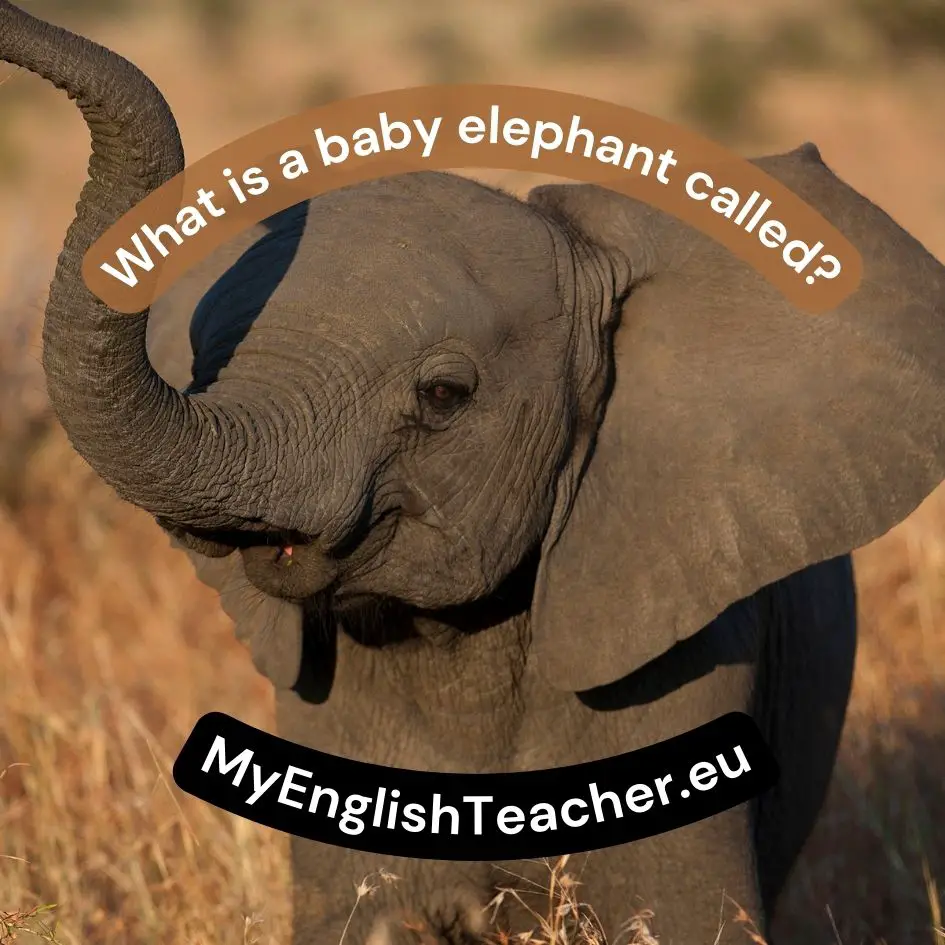
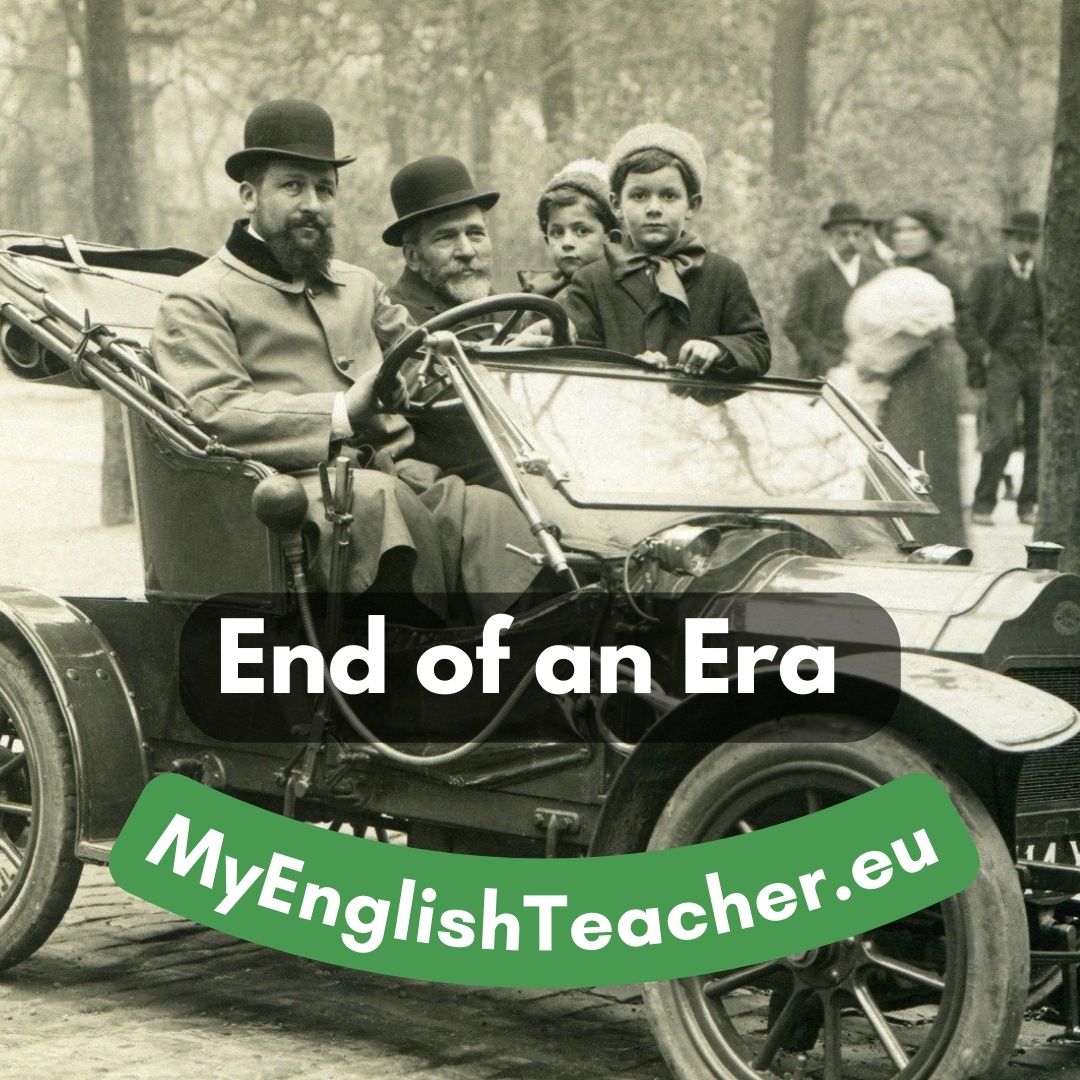

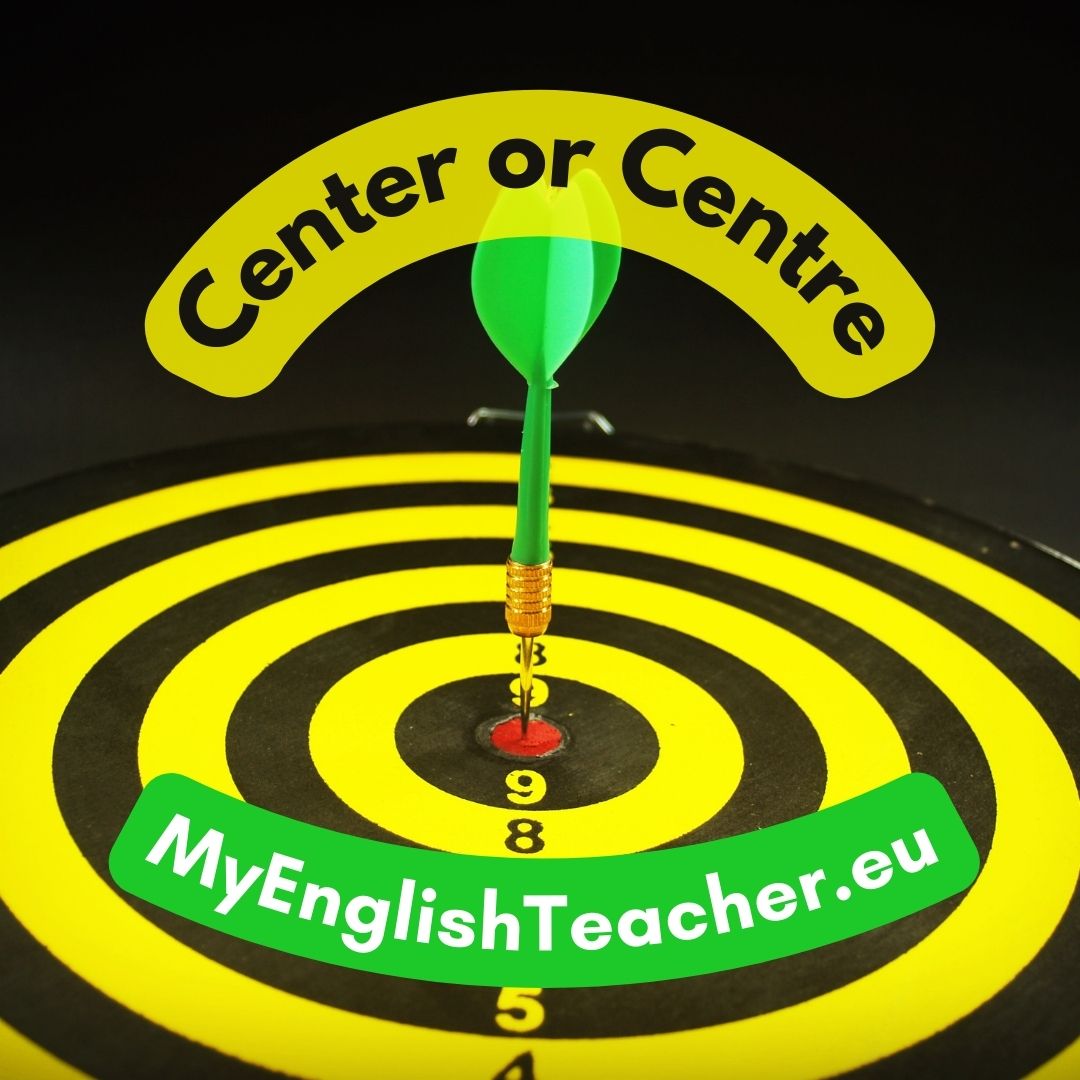
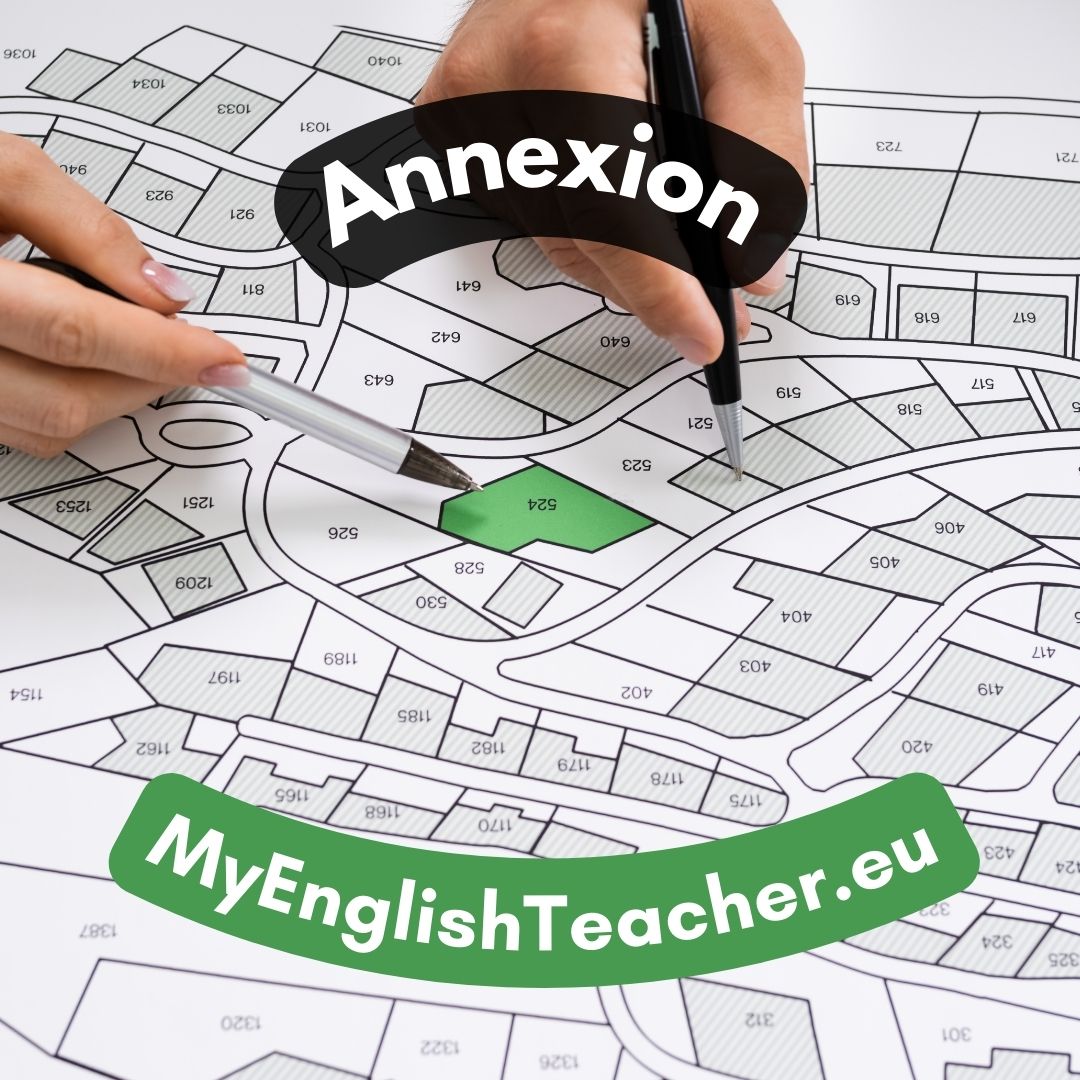
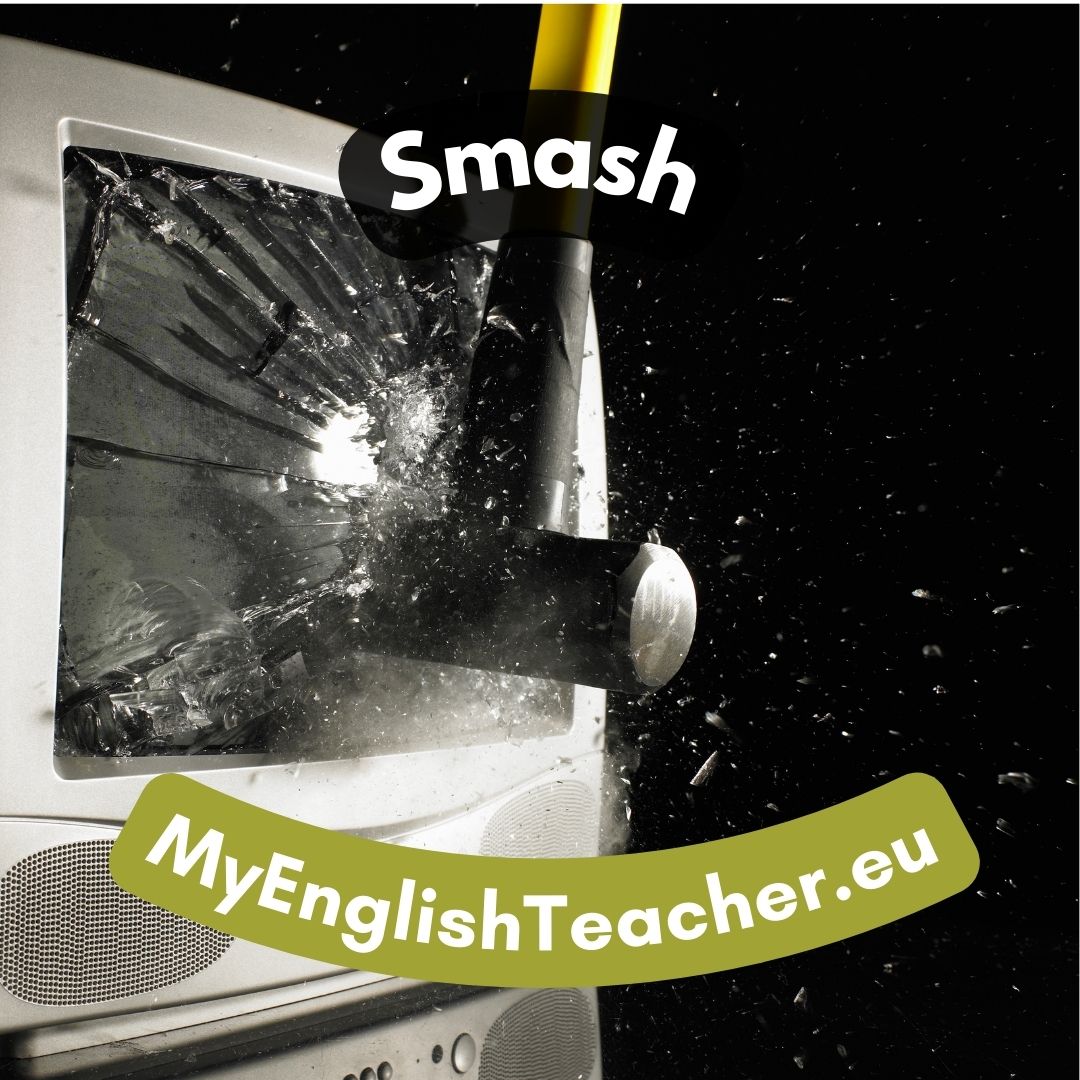





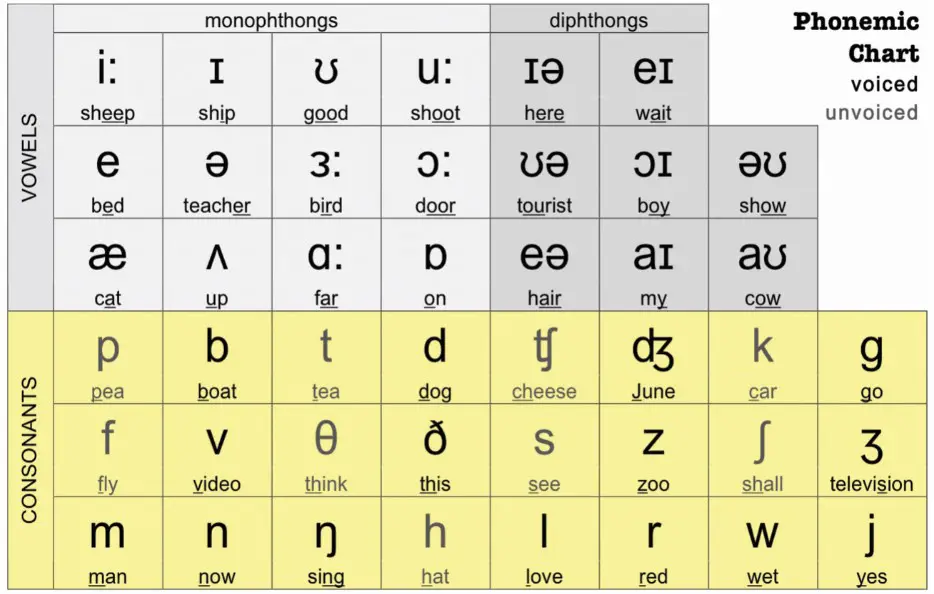



![Spot Parts of Speech [Grammar Quiz]](https://www.myenglishteacher.eu/blog/wp-content/uploads/2023/01/parts-of-speech-quiz.jpeg)


